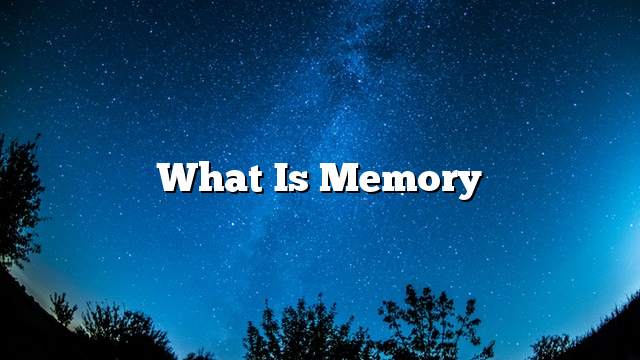memory
It is an encipherment of past experiences, their storage and retrieval of the human mind, the result and effect of cognition, learning and attention. The basic pattern of remembering consists of attention to an event, followed by the perception of the event in the brain, the repeated interest, or the practice of the event, The cumulative effect on memory can be the performance of various activities, such as: reading, understanding words, referred to as a lot of things that rely on memory, such as: intelligent behavior, thinking, ability to solve any problem, cognition, routine work.
Memory types
Long-term memory
The information that is stored in long-term memory is stored for life, and evidence suggests that long-term memory is a collection of information that is increased by the information retrieval feature, which allows a person to distinguish a certain memory from All other memories stored in the brain represent the elements stored in long-term memory both: facts, people’s impressions, things, and events.
Short-term memory
A system to temporarily store and manage the information required to perform complex cognitive tasks such as learning, thinking, and understanding. Short-term memory is also involved in the process of selecting, initiating and ending information processing functions, such as data encryption, storage, retrieval, and average memory expansion for natural adults To seven, called short-term memory with primary memory, or active memory.
There are short-term memory tests, including the memory extension, which is a number of elements, usually consisting of words or numbers that a person can remember and retrieve. In this typical test of memory expansion, a person reads a list of Random numbers are loud, so they read one number per second and when it ends the person being called is called to call the items in the system, ie re-mention the numbers you read.
Sensory memory
Sensory memory works on vast amounts of environmental information, conserves it, and sometimes keeps it for a fraction of a second, because it provides the brain with a lot of detail in a short period of time. Sensory systems receive large amounts of information at every moment of the day, The information is used to absorb the visual information of light, letters, words, and all the things that orbit the ocean around it at the same time.
